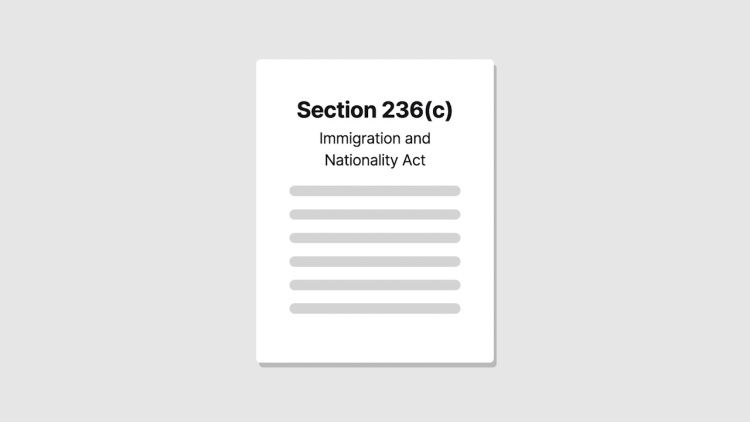Demore v. Kim
United States Supreme Court
538 U.S. 510, 123 S.Ct. 1708, 155 L.Ed.2d 724 (2003)
- Written by Matthew Kay, JD
Facts
Kim (defendant) is a citizen of South Korea who became a lawful permanent resident of the U.S. in 1986. In 1996, he was convicted of first-degree burglary in a California state court. The following year he was convicted of a second crime, “petty theft with priors.” The Immigration and Naturalization Service (INS) charged that the defendant was deportable because of these convictions and detained him before his removal hearing pursuant to 8 U.S.C. § 1226(c), which provides that “the Attorney General shall take into custody any alien who” is deportable because he has been convicted of a one of a specified set of crimes. Kim filed a habeas corpus petition challenging the constitutionality of § 1226(c) and claiming that the statute violated his right to due process because the INS had not made a determination that he was either a danger to society or a flight risk. The district court agreed that the statute was unconstitutional and Kim was released on bond. The United States Court of Appeals for the Ninth Circuit affirmed, relying on Zadvydas v. Davis, 533 U.S. 678 (2001), which held that an alien can bring a habeas corpus petition to challenge his indefinite detention before a removal hearing.
Rule of Law
Issue
Holding and Reasoning (Rehnquist, C.J.)
Concurrence/Dissent (Souter, J.)
Concurrence/Dissent (Kennedy, J.)
Concurrence/Dissent (Breyer, J.)
What to do next…
Here's why 907,000 law students have relied on our case briefs:
- Written by law professors and practitioners, not other law students. 47,100 briefs, keyed to 996 casebooks. Top-notch customer support.
- The right amount of information, includes the facts, issues, rule of law, holding and reasoning, and any concurrences and dissents.
- Access in your classes, works on your mobile and tablet. Massive library of related video lessons and high quality multiple-choice questions.
- Easy to use, uniform format for every case brief. Written in plain English, not in legalese. Our briefs summarize and simplify; they don’t just repeat the court’s language.





